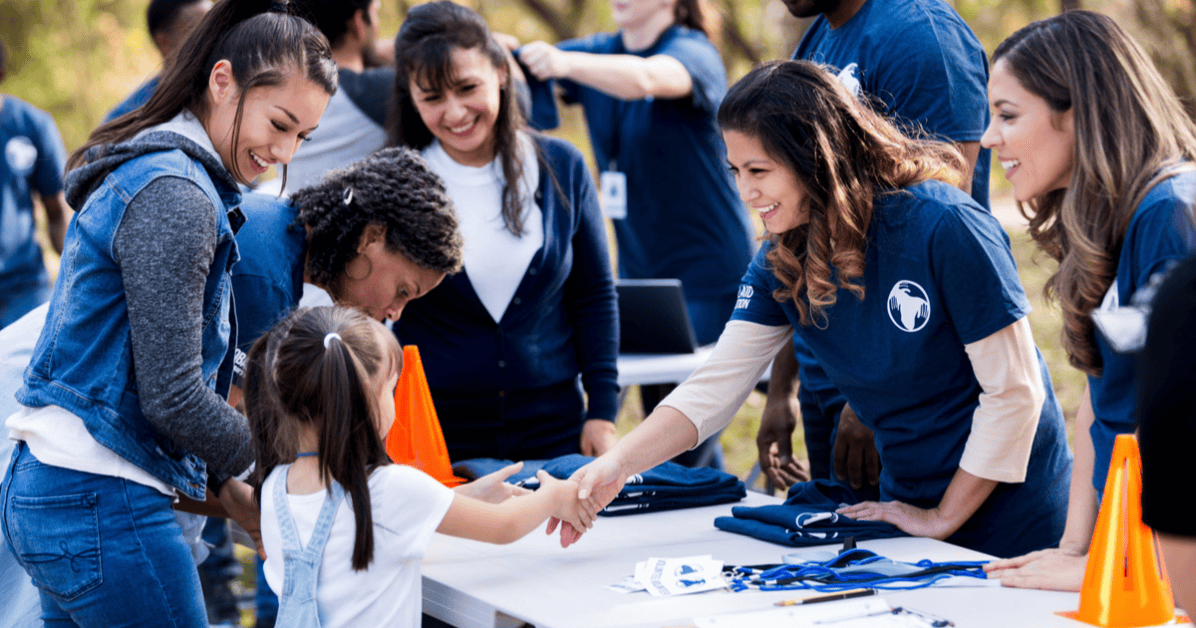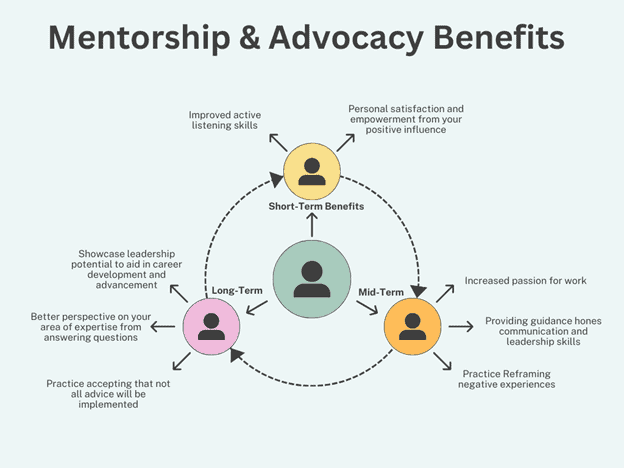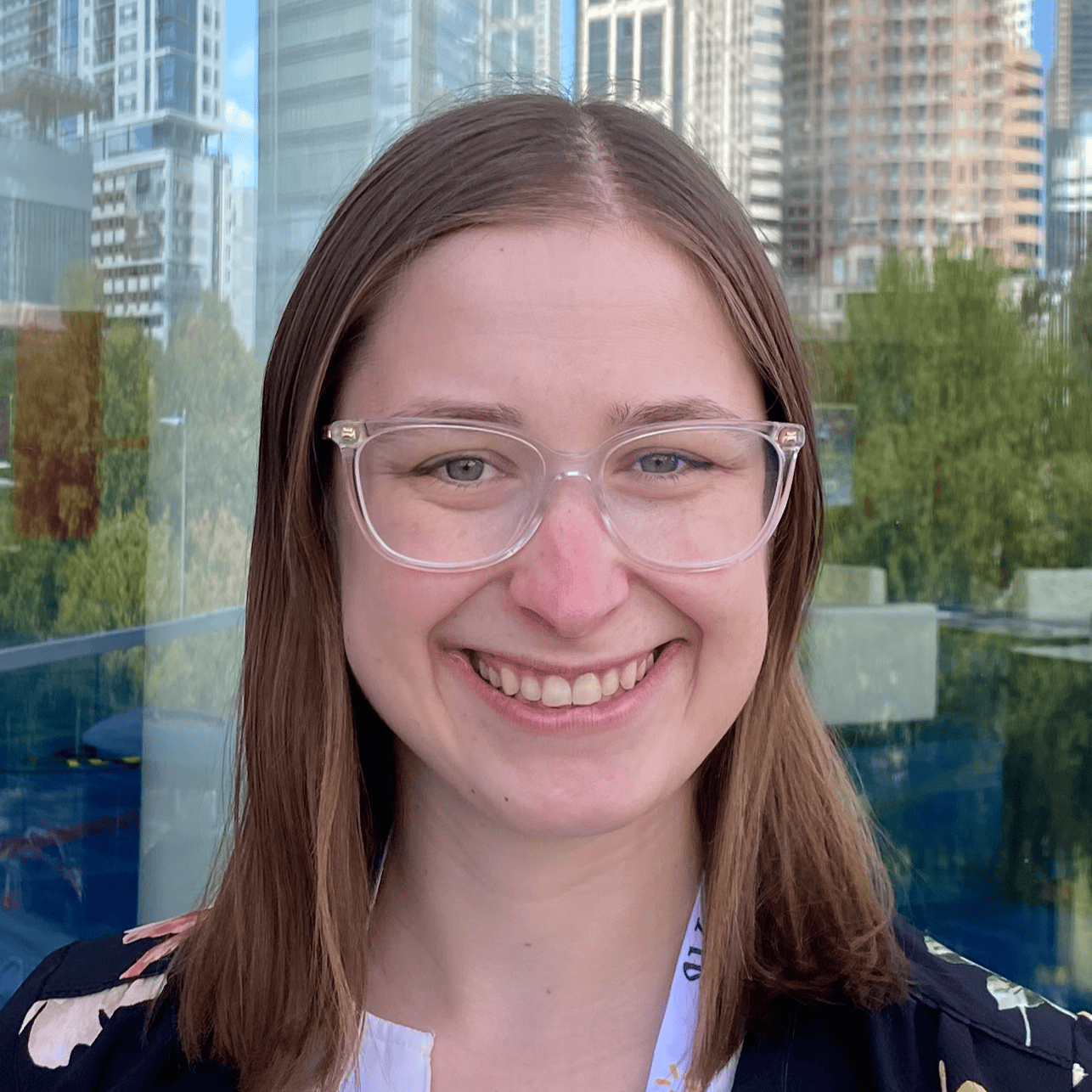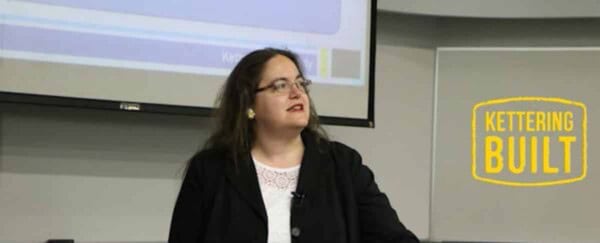The spark was lit when two Society of Women Engineers (SWE) leaders discussed mentorship and adult advocacy at the WE23 annual conference. They realized these two areas are very similar. Curious, they decided to collaborate. The result? This article.
The aim of this collaborative article is to inspire readers to consider becoming an adult advocate, a mentor, or both. We compare and contrast the roles and share the impact and benefits. We hope readers gain insight into how these roles can benefit them and their volunteer work. We also include some resources and next steps to support you in this journey.
Mentoring and adult advocacy go hand-in-hand. Both focus on representation for girls, women, and under-resourced communities, along with giving back and being inclusive.
The Basics of Mentorship and Adult Advocacy
Anyone can be an adult advocate as long as they are focused on supporting students’ interests and education in STEM. There are many different ways to provide this support, including volunteering at an outreach event, mentoring a pre-college student, and advocating for a child’s interest in STEM as a parent or teacher. No specific background or experiences are necessary.1
Anyone can be a mentor if they have good listening skills, a willingness to help, and an openness to share their story.2 Mentors have experience or insight in an area that their mentee doesn’t. This is especially true for reverse mentors, who mentor someone who is older or has more work experience than them. Mentors provide valuable advice or new perspectives based on their professional and personal experiences.
Similarities
Adult advocacy and mentorship are similar in many aspects. Both roles can create a supportive environment that promotes taking risks and builds self-esteem. SWE adult advocates can act as mentors to pre-college students as they develop an interest in STEM.
Examples of the impact an adult advocate can have on a student include:
- Modeling a visible example of success in STEM
- Promoting career exploration
- Enhancing a student’s problem-solving skills
- Building a student’s confidence and self-esteem
- Teaching self-advocacy and finding their voice
- Creating a supportive learning environment
- Encouraging a STEM career through discussions on future plans and interests
The impact of an adult advocate can be even greater when considering that young students are still learning how to view themselves. Showing a child their potential can leave a lifelong impression.3
The impact of a STEM mentor on an engineer is similar and well-documented.4 A mentor:
- Improves a person’s career development and performance
- Helps retain women in the engineering pipeline by providing support and hope
- Provides valuable, unwritten workplace advice that contributes to success
- Aids mentees with personal development, such as empathy and confidence
Mentorship is generational and lasting for two reasons. One, the mentee often goes on to become a mentor themselves and pass on the same advice. Two, you broaden your toolkit when you get advice from multiple generations (e.g., Generation Z and baby boomers mentoring one another).

Differences
There are some unique aspects to being an adult advocate. Fortunately, SWE and the Outreach Committee created resources to help advocates feel prepared. You can find these resources at the end of this article. Just as a mentor has to get to know their mentee to determine how to best support them, an adult advocate must get to know a student’s background, personality, and experiences to best encourage them.
SWE hosts many outreach events where adult advocates are paired with a small group of students. The small group participates in a variety of activities together, such as presentations, hands-on experiments, and mentorship/career discussions.
Here is how the experience of an adult advocate and mentor could differ at an event such as this one:
| Category | Adult Advocate | Mentor |
|---|---|---|
| Timing | Outreach events typically last a few hours or a day. | Mentoring relationships are usually longer or more frequent. |
| Event Focus | The adult advocate is typically not the primary focus. | Mentorship events center both mentor and mentee. |
| Structure | Specific and can require more planning, as the aim is to keep students focused and on task | Unstructured flow - can require intentional direction from mentor, which takes time to learn |
| Audience | Pre-college students | Adults |
| Connection | Limited time for advocates requires them to connect quickly with multiple students, without being matched by commonalities. Advocates must foster inclusive group dynamics among participants. | Vulnerability is critical. A mentor needs to be willing to share personal stories in a one-on-one setting to strengthen the relationship. It's helpful to be receptive to the cultural needs of a mentee.4 |
| Stakeholders | Parents and guardians | Not applicable (sometimes managers) |
| Stakeholder Management | Communicate with stakeholders to help students receive the best experience and benefits. The advocate manages a stakeholder's concerns and expectations, but also supports them and provides helpful resources. | In official mentoring programs, communicate with stakeholders to ensure expectations are clear and value is being created for the mentee and mentor. |
Benefits
Being a mentor or adult advocate has just as many benefits as being a mentee or student. Below are different benefits that engineers can experience as a mentor and adult advocate, based on their level of experience or time spent in a mentorship role. “Short-term” refers to benefits typically experienced early in a mentor or advocate role, but each experience is unique.

The infographic above illustrates the benefits of mentorship & advocacy. It features a central figure surrounded by three categories of benefits: long-term, mid-term, and short-term. Additionally, it includes other benefits outside of these categories. Short-term benefits include improved active listening skills and personal satisfaction and empowerment from your positive influence. Mid-term benefits include increased passion for work, practice with reframing negative experiences, and honing leadership and communication skills from providing guidance. Long-term benefits include practicing acceptance that not all advice will be implemented, better perspective on your area of expertise from answering questions, and showcasing leadership potential to aid in career development and advancement.
The purpose of this article is to highlight the similarities and differences between the role of an adult advocate and a mentor. One lesson learned from this committee collaboration was that we can expand our impact by leveraging each other’s strengths as committees and individuals.
For example, learnings or experiences from mentorship involvement can improve STEM outreach efforts, both internally and with partner organizations. Collaboration reduces siloes within SWE and helps us achieve our shared mission faster. If you are looking to expand your impact and become more involved in SWE’s outreach or mentorship efforts, see below to find the opportunity that’s right for you.
Next Steps
Get Involved
Sharing SWE resources with your local community is a great way to get started.
How to Become an Adult Advocate
- Become a SWENext Club counselor
- Volunteer at Invent It. Build It.
- Volunteer through your local SWE section
- Join a Society-level committee such as the Outreach, SWENext, or Leadership Coaching Committee
How to Become a Mentor
- Volunteer on the virtual SWE Mentor Network
- Volunteer at mentoring meetups or speed mentoring at WE conferences
- Mentor team members in a SWE Affinity Group or Society-level committee
- Join or create a mentoring program in collegiate or local SWE sections, or in your organization
- Join the Society-level Mentoring Committee and get community support
Resources
Within SWE
- Advance Learning Center: Explore more than 200 online courses, including ones focused on adult advocacy and mentoring
- DEI&B Resources: Learn how to apply DEI&B values
- Women of Color in STEM: Read this joint report from SWE and NSBE
Outside of SWE
Other professional associations, specific to your industry, may also offer mentoring or adult advocacy programs. Some examples include:
- Society of Hispanic Professional Engineers (SHPE)
- National Society of Black Engineers (NSBE)
- Advancing Indigenous People in STEM (AISES)
- Out to Innovate
- Out in Science, Technology, Engineering, and Mathematics, Inc. (oSTEM)
- Society of Asian Scientists and Engineers (SASE)
Citations
1. https://swe.org/outreach/adult-advocate/
2. https://alltogether.swe.org/2023/05/stem-mentoring/
3. https://www.k12dive.com/news/95-of-teachers-say-mentors-make-a-difference-for-students/617250/
4. https://nap.nationalacademies.org/resource/25568/interactive/mentorship-defined.html#section1
Authors
-

Maddy Best (she/her) is a manufacturing process engineer at Post Consumer Brands in Minnesota. She is a part of the Society Outreach Committee's Programming Liaisons Work Group. In FY23, she served as a member and lead of the Outreach Committee's DE&I Work Group. She enjoys developing creative ways to show others the connections between K-12 outreach and DEI&B and is passionate about creating accessible learning resources.
-

Diya Dwarakanath (she/her) has been a mentor in the SWE Mentor Network since its 2020 inaugural cohort. She is honored to serve on the FY24 SWE Mentoring Committee and FY24 SWE Editorial Board. Diya is currently a freelance science and engineering journalist. Previously, she was a senior R&D engineer at Cue Health in San Diego, Calif. As a mentor and STEM outreach adult advocate for over a decade, Diya aims to be as humble and inclusive as possible.






